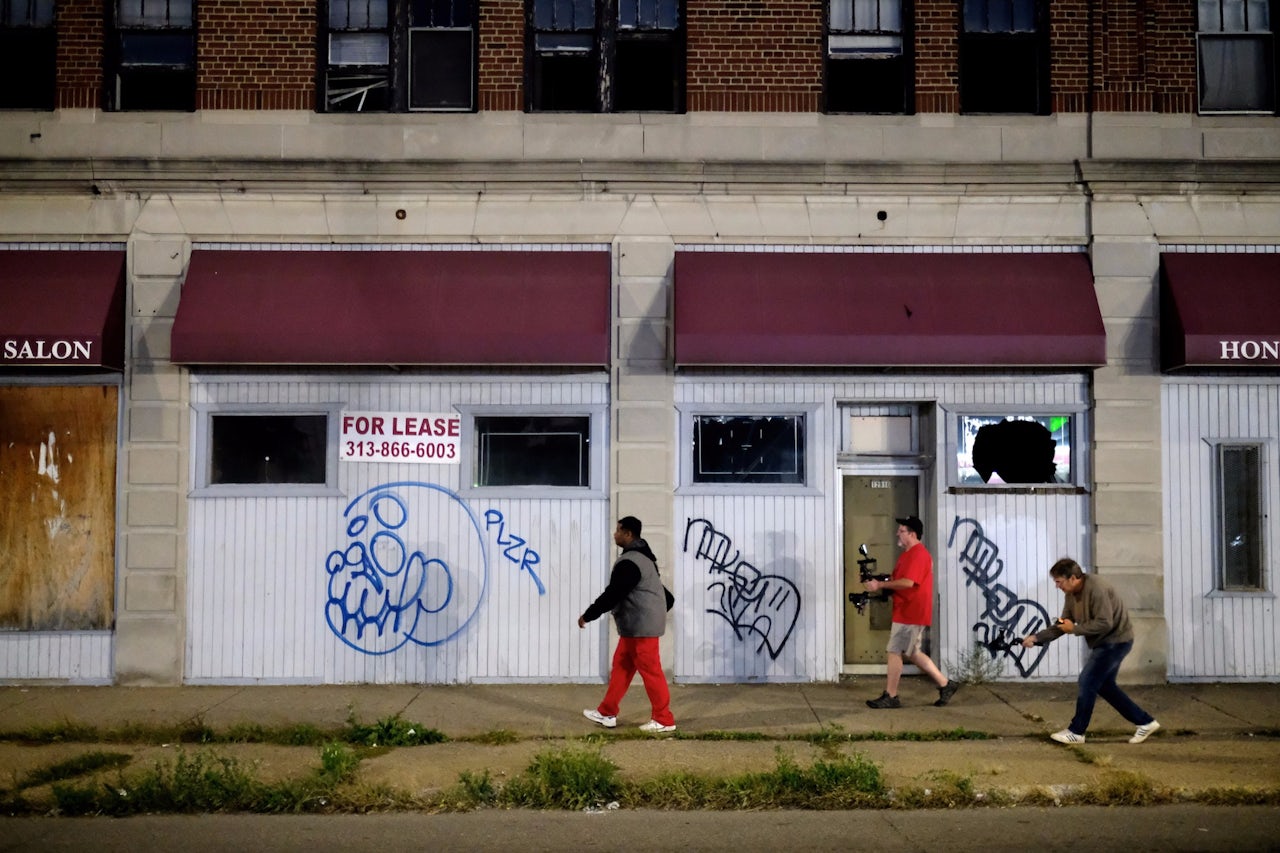Americans love a good walk-to-work hero. Patrick Edmund, 52, walks “about 12 miles” every day to get to work at an ice cream shop and burger joint in McKinney, Texas. “Though the two-and-a half-hour commute might dishearten many, Edmond said he actually loves and appreciates the long walk. He keeps a positive spirit,” ABC News reported.
Edmund is not alone. In January 2015, the Detroit-Free Press published a story about James Robertson, 56, who walked 21 miles a day between his home in Detroit and a factory job in another town for 10 years. In September 2015, WSAZ reported that Micole Staton of West Virginia walked 12 miles to and from her job as a waitress at a Bob Evans. In May 2016, WJHG in Lynn Haven, Florida, reported that Joella Oelrich, 26, was walking “a couple of miles every day” to two jobs, one at an animal hospital and one at McDonald’s. In July 2016, NH1 reported that Kyle Bigler, 25, walked a combined 16 miles a day to get to two minimum-wage jobs in New Hampshire. In September 2016, The Washington Post reported how Jourdan Duncan, 18, walked about 16 miles to get to and from a factory job in California. In October 2016, The Today Show featured Kevin Finley, 30, who reportedly walked 18 miles to work and back, six days a week, for his job at a Ruby Tuesday’s in Ohio. Steve Simoff of Iowa is perhaps the king of the genre: The 61-year-old walked 35 miles to and from his janitor job on days that he couldn’t catch a ride, according to a February 2015 report in The Des Moines Register.
These stories tend to end with the founding of GoFundMes, the purchasing of used goods for the walking men and women, and everyone feeling good. But the stories usually don’t mention the fact that these tales are surfaced, usually, because police got a call about a man walking alone. The cops check out the scene, realize they’re not dealing with a criminal but a man beaten down by toil, and post an inspiring story on Facebook, where it then goes viral. Then a news organization reports it from that angle.
So while these stories might come across as heartwarming, indicative of the power of community and the American spirit, they are really indictments of a country that has the world’s largest economy but can’t promise a living wage. “Let's talk about how you’re romanticizing that a man can work five days a week in this country and not afford a car,” Twitter user and podcaster Beauty Jackson tweeted earlier this month after Edmund’s story went viral.
Robertson, the Detroit-based factory worker, made $10.55 an hour, “well above Michigan’s minimum wage of $8.15 an hour but not enough for him to buy, maintain, and insure a car in Detroit,” wrote the Detroit Free-Press. Through GoFundMe, Robertson raised $360,000 and was able to buy a 2015 Ford Taurus.
While his story might seem like a parable of the overwhelming generosity of the American people, the apathy of strangers was actually part of the problem. Robertson took buses, but he had to fill in the gaps by walking because his job was located in “the no-bus land of rolling Rochester Hills,” the Free-Press wrote, one of the many communities where voters opted not to pay for the regional bus system. “So it has no fixed-route bus service.”
Let's talk about how you're romanticizing that a man can work five days a week in this country and not afford a car. https://t.co/xmXjqCZx0K
— Y'assssssss Al Ghul (@beauty_jackson) February 25, 2017
According to the Living Wage Calculator, which calculates a regional “living wage” that covers basic needs including food, housing, and transportation, $10.11 an hour is the minimum amount an adult living in the Detroit area needs to meet basic needs. That figure doesn’t provide any margin for savings or unplanned events like having a car break down, however. Robertson was living paycheck to paycheck.
Lifting someone deserving out of hardship by way of internet fame might look and feel good, but viral GoFundMe pages and the kindness of strangers are not a sustainable substitution for social services and higher living wage requirements to aid the 43.1 million Americans living in poverty.
A third of working families “now earn wages so low that they have difficulty surviving financially,” according to The Working Poor Families Project. “Millions of American breadwinners work hard to support their families,” the report says. “But, despite their determination and effort, many are mired in low-wage jobs that provide inadequate benefits and offer few opportunities for advancement.”
This is what it’s like to be a member of the working poor in America. Wages are too low. Wealth is unattainable for the poor and accrues to the already wealthy. Social services are inadequate. Public transportation is underfunded. These problems disproportionately affect children, women, and minorities.
Nearly half of states have increased or will increase their minimum wages this year, but not enough. Cuts to Medicaid under a Republican repeal of Obamacare could also set poor people back.
It’s great that walking heroes like Robertson got a windfall (indeed, windfalls are critical to becoming wealthy). But the fact that strangers paid for him to get a car doesn’t make it any less heartbreaking that he still couldn’t afford one after working full time for 10 years.
